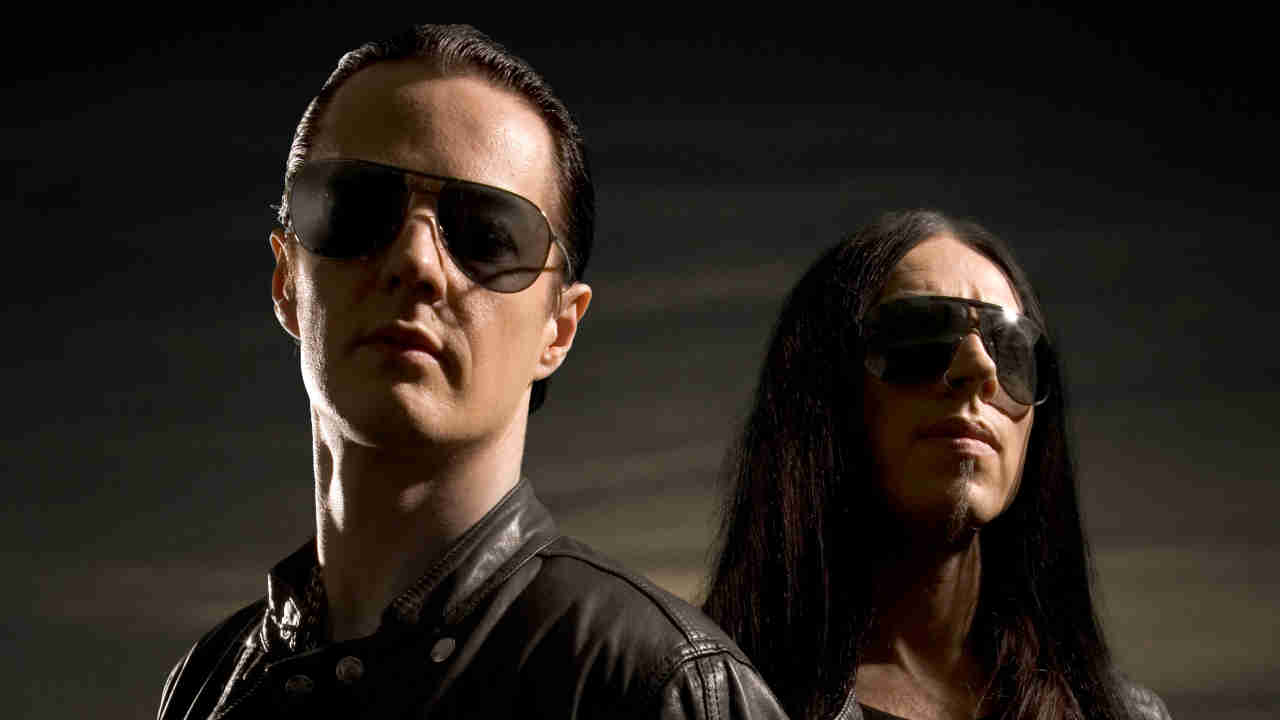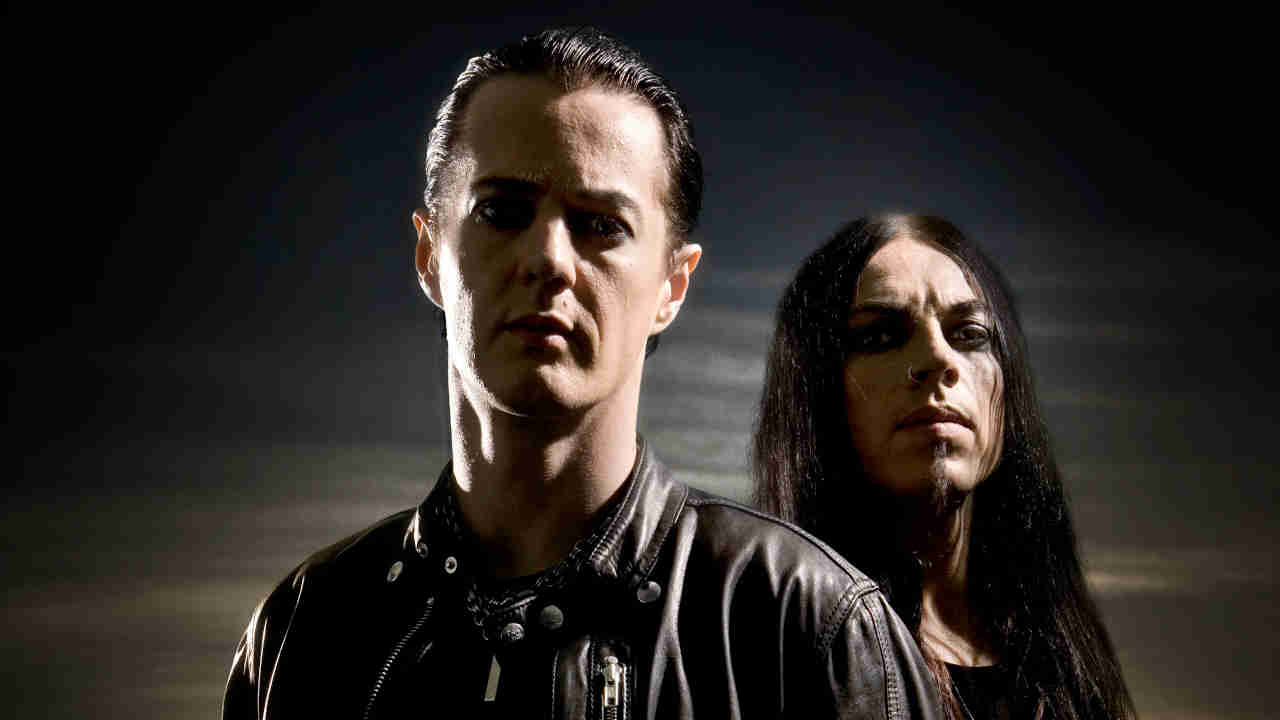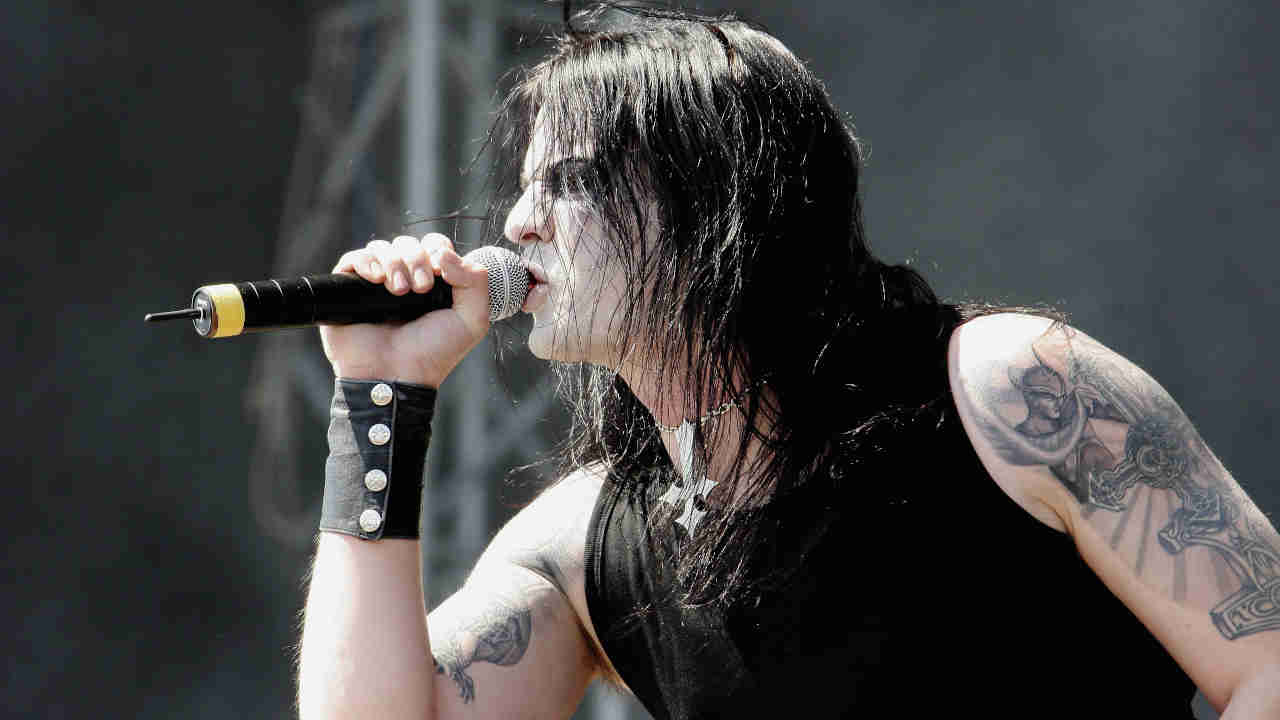“Within my lifetime there could be some natural disaster or a third World War that could destroy everything. I sincerely believe that we live in the beginning of the end”: How Satyricon faced the darkness with The Age Of Nero

Satyricon are one of the most successful bands to emerge from the early 90s Norwegian black metal scene. As they released 2008’s The Age Of Nero album, Metal Hammer found mainman Satyr ready to face a bleak future for the world.

“Just being up there in the mountains and feeling like I’m literally on top of the world, it inspires me to work on something epic. It inspired me to try to write something that evokes those mighty surroundings…”
You could travel anywhere in the world, anywhere where the grimy tentacles of Norwegian black metal have left their unholy mark, and you will never find anyone willing to describe Sigurd ‘Satyr’ Wongraven as a man lacking in self-belief.
Although not quite old enough to be instrumental in his native scene’s late 80s conception, the Satyricon vocalist, chief songwriter and creative driving force has now been flying the flag for that gale-beaten Northern spirit of musical darkness for more than 15 years and, with one or two notable exceptions, he has long been its most potent and effective advocate, taking his band’s own uniquely grim but deceptively accessible take on metallic extremity to a sizeable global audience, transcending his origins as a shadowy underground figure in the process.
As a result, it doesn’t come as any great surprise to see that 2008’s incarnation of Satyr Wongraven exudes an almost unsettling amount of calm confidence as he settles down to speak to Metal Hammer about Satyricon’s brand new album, The Age Of Nero, at Roadrunner’s London headquarters. Looking somehow leaner and fitter than ever before – and bear in mind that Satyr has never looked like skipping the occasional meal is a problem – the now-32-year-old frontman is on sharp, focused form. He seems revitalised, and it soon becomes apparent why.
As previously documented in this magazine many months ago, the writing process for The Age Of Nero began 18 months ago up in the bleak, isolated Norwegian mountains, in a remote log cabin. Bereft of internet access, TV, radio or any other human contact beyond a mobile phone that largely remained resolutely switched off, Satyr extricated himself from the low-key hubbub of Oslo life and the stresses of his increasingly busy career and returned to the elemental serenity that first inspired him back in the band’s early days.
“Why do people have cabins up in the mountains?” he posits. “In Norway it’s about getting away from the stress of the every day. I have lots of friends who own cabins and they tell me that that’s the only time they really relax. The first time I went there, I went for five days and for the first three days I did nothing. I just slept and slept and slept and worked for maybe two hours a day. I just hadn’t realised that I was so burnt out and exhausted. The silence and the solitude of being up there with no television or internet and no nothing, my brain and body were telling me ‘You’re fucked!’”
Whether or not you buy into the notion of music as a means of spiritual expression, rather than purely as a manifestation of creative urges, there’s no denying that true solitude is something that most of us could benefit from experiencing every now and then, if only to declutter our untidy minds and regain some kind of perspective on our largely pause-free lives.
For Satyr, who has devoted his life to music since his teens and for whom the task of steering the Satyricon ship is one that he has embraced with fierce determination from the very start, heading off to that cabin amid the snowy peaks was seemingly the only way he could recapture the true essence of his band’s sound, without the persistent jab of record label pressure, fan expectation or financial restriction derailing his train of thought.

“People go up there to find some kind of inner peace that they’ll never find at home,” he continues. “It does something to your mentality, so it’s more than just looking out of the window and seeing the view. That’s cool too, but it’s more about finding a different state of mind.”
Contrast has always played a large part in Satyricon’s musical and aesthetic world. The contrast between the primal blizzard of the band’s earliest recordings and the ambition that has always been writ large through their leader’s every public pronouncement; the contrast between the quiet elegance of their Scandinavian surroundings and the increasingly brutish thump and rumble of their presence as a live band; and now, the contrast between Satyricon’s status as respected upholders of black metal’s never-to-be-diluted ethos and the fact that, for The Age Of Nero, Satyr opted to leave the snowy plains of Norway and head to the transient glitz and vapid glamour of Los Angeles, to record at Sound City studios (where Metallica recorded Death Magnetic) with Joe Barresi, one of rock’s hottest producers and a former collaborator with Queens Of The Stone Age and Tool among others.
Given that Satyricon have occasionally been forced to dodge critical slings and arrows, both from the press and an often fickle fanbase, as each tangential stylistic leap wrenched breath from the lungs of those who thought they knew what was coming next, jumping into a sonic bed with someone so closely associated to the rock mainstream could easily be construed as a huge risk. But as with everything else that Satyr does, this was no blind lunge into the unknown.
“I know this band and this material better than anyone else in the world,” he states firmly. “Myself and Joe Barresi had to have clearly defined roles so that we’d complement each other. I like to produce the records myself. It’s not that I don’t think other people would be capable of it, but as I see it, a producer is a visionary and the one that makes the artistic choices. That’s my job. Joe’s a producer but he’s also an engineer, and he likes that authentic, real deal sound and not that processed, digital sound. He’s a hardworking guy with an old-school attitude and it worked out really good.”
SATYRICON – Black Crow On A Tombstone (OFFICIAL MUSIC VIDEO) – YouTube 
Plenty has been written about Satyricon’s evolution as a band over the years, not least that unlike most of their peers the band have always led expectations, rather than followed them. From the folk-laced barbarity of Dark Mediaeval Times in 1993, through to the Pantera-approved industrial muscularity of 1999’s Rebel Extravaganza, and on to the stripped down rock’n’roll malevolence of Now, Diabolical in 2006, they’ve always pursued the course that felt right at the time, and history suggests that Satyr is particularly adept at making the right decisions for his band.
For a start, the noticeably glossier Dimmu Borgir aside, no other Norwegian metal band has toured the world as extensively nor sold as many records as Satyricon. In spite of all this, however, The Age Of Nero is not an album that bears even the slightest glimmer that compromise may have taken place during its creation.
Arguably heavier and certainly denser and more involving than its predecessor, it signals a fairly steady and committed continuation of the Now, Diabolical sound, but with little indication that CD sales are of any interest. What comes across strongest is that Satyricon are close to perfecting their magical formula for crafting songs. Eschewing the relentless speeds and wilful intricacy that many likeminded bands have relied upon over the years, songs like Commando and Black Crow On A Tombstone offer directness and simplicity amid the contiguous barrage of glowering, unstoppable violence.
“I know a lot of people that are deeply into extreme metal and not much else, and they like complexity,” Satyr says. “I like that too, but I want what we do to be perceived as straight to the point. Listening back to some of the stuff we did in the past, we had these long, epic songs and they start somewhere and then five minutes later you’re thinking, ‘Is this the same song? What the hell happened?’ It’s like you leave the harbour and the ship goes out on the open ocean and you’re thinking, ‘Where are we?’ It’s unfocused, but with a song like The Sign Of The Trident [from The Age Of Nero], it’s seven minutes long, with an epic opening part, a low-key and mellow verse, a very catchy chorus, intricate drum patterns and lots of cool guitar parts, but it always comes back to where it started. It all makes sense. A lot of people in extreme metal take their eye off the target but I’m always looking for that red line between the beginning and the end.”

It’s both slightly surprising and strangely impressive to hear the ever-confident Satyr recounting his past mistakes, but having learned from them it’s clear that Satyricon have been liberated, and not just in the studio.
“Playing live is entertainment and records are art,” he says, shrugging as if it were the most obvious statement he’s ever uttered. “Fuck trying to make it both. Venom and Bathory laid down the foundation for so much, including the rock’n’roll factor and the big-ass show. You know, let’s just entertain. Let’s cater to the moshpit. It’s much more exciting for the fans, and for me and the rest of the band it made playing live so much more fun. We reach the chorus of Now, Diabolical and I shout ‘Now!’ and hold out the microphone and I see all these screaming, twisted faces singing back at me, and that’s a big adrenaline rush.”
Do people seem surprised that it’s OK to smile and have a good time at a black metal gig? You certainly didn’t see much smiling at black metal shows a decade ago…
“I think I’ve freed a lot of fans from the chains,” grins Satyr. “You see people wanting to clap but they’re thinking, ‘Is Satyr going to be OK with this or is it not necro enough?’ and so I make sure they know it’s cool to clap along, you know? We’ve let a lot of people loose. Don’t hold back. You’re supposed to have fun at a Satyricon show. It’s a metal show.”
Back when Satyricon first emerged, black metal didn’t seem like a genre with much of a future beyond its own self-imposed limits, but after years of being misinterpreted and mis-sold by bands that cared more about posing in corpsepaint than any creative concerns, it’s finally looking out instead of in and allowing the outside world to revel in its glorious cacophony. Finally, we’re all in the dark together, celebrating the dying of the light and the oblivion to come. As Satyr insists with deadly seriousness, The Age Of Nero is upon us in more ways than one.
“‘Nero’ is Latin for dark,” he states. “All I see around me is war in Europe, war in Africa, war in Asia. I see natural disasters, each one bigger and more catastrophic than the last, clashes of culture and religion. I think that within my lifetime there really could be some natural disaster or a third World War that could destroy everything. That’s one of the reasons why we need to enjoy the moments we create as a band. I sincerely believe that we live in the beginning of the end.”
Originally published in Metal Hammer issue 186, November 2008
